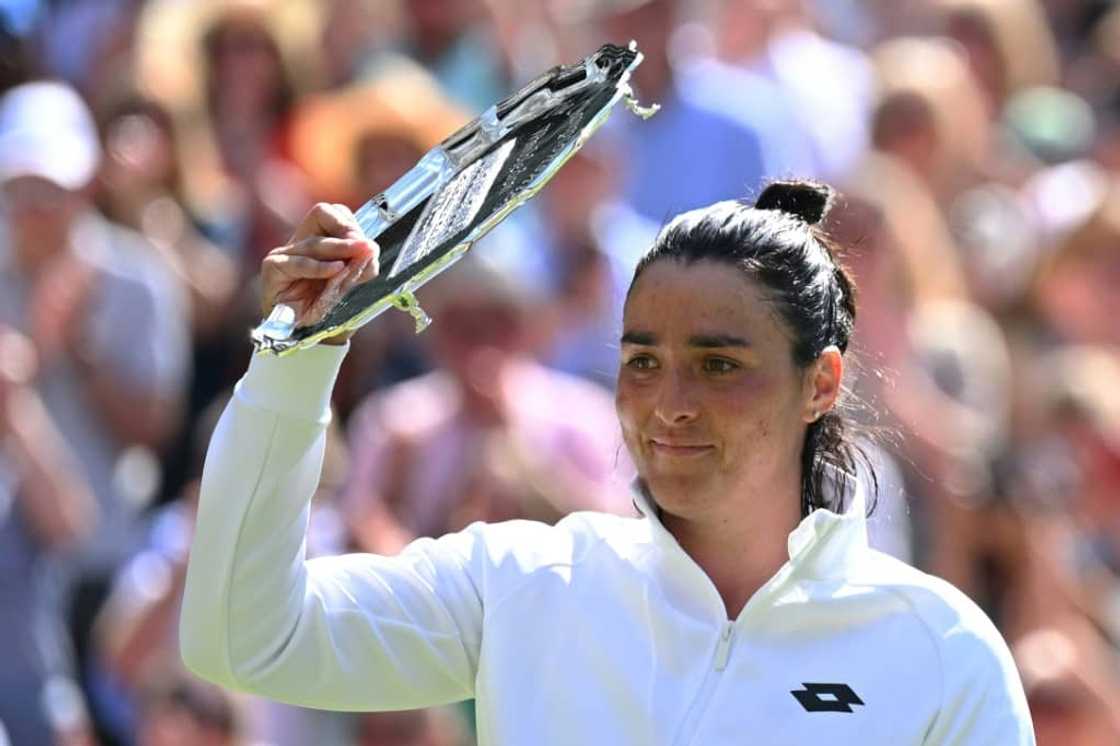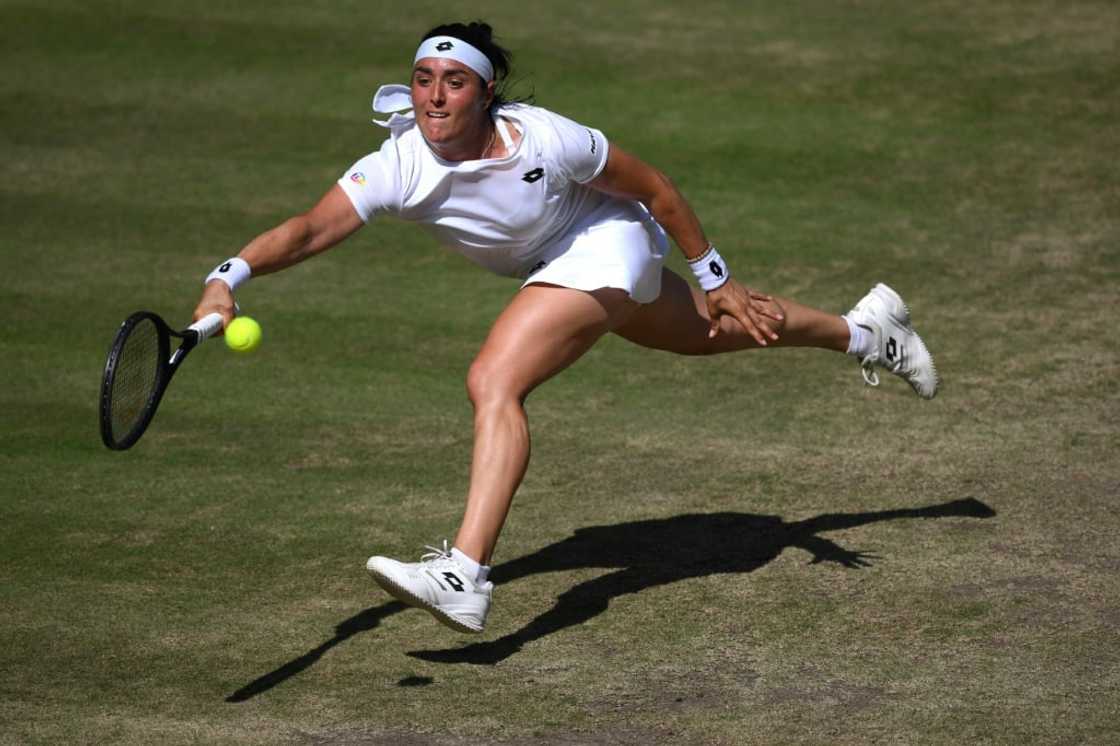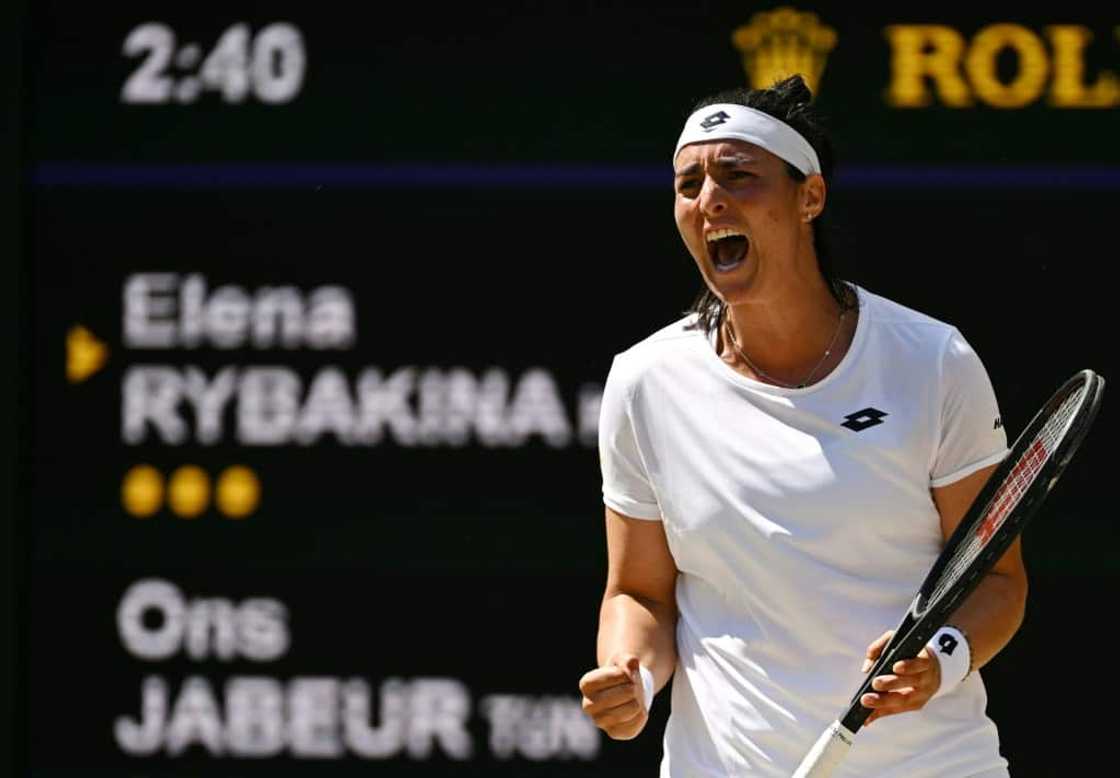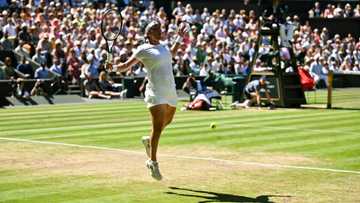Jabeur still Tunisia's pride despite Wimbledon loss

Source: AFP
New feature: Check out news exactly for YOU ➡️ find “Recommended for you” block and enjoy!
Hailing her as the "nation's pride" and "ambassador of happiness", Tunisians remained enthralled with tennis star Ons Jabeur Saturday, celebrating her presence in the prestigious Wimbledon final despite her loss.
Jabeur became the world number two player and then made history as the first African woman to reach a Grand Slam singles final in the modern era.
Although she missed out on the title at the All England Lawn Tennis Club, she said after the match: "I'm trying to inspire many generations from my country. I hope they are listening."
At a cafe not far from the Hammam Sousse tennis club where the 27-year-old began her career, a group of young Tunisian men had been intently watching the match, yelling in excitement at each point she won.
"She's our Tunisian national product," said Safwen Ghairi, a 21-year-old student.
He and his friends had rushed through their traditional Eid al-Adha meal to get to the cafe -- one of the few open on the national holiday which began Saturday -- to watch the match.
PAY ATTENTION: Follow Briefly News on Twitter and never miss the hottest topics! Find us at @brieflyza!
Jabeur represents the African continent "and the region at Wimbledon", Ghairi said. "It's a real achievement."
'Nation's pride'
His friend Zaher Edine Dahman, 27, called Jabeur "our ambassador of happiness".
"The authorities could never match the publicity Ons Jabeur has brought for Tunisia, even if they spent millions," he said.
"We used to dream of a Tunisian player simply qualifying for Wimbledon, and today, Tunisia is at the final," he added.

Source: AFP
Her former trainer Nabil Mlika told AFP after the match that Jabeur was "the nation's pride", wishing her luck for the US Open, which begins next month.
Cafe worker Hafedh Amrouni, 25, said that Jabeur had "honoured" the country despite her coming in runner-up.
Her success has been a rare good news story for a North African country mired in economic and political crisis, made more acute by the coronavirus pandemic and the impact of the war in Ukraine.
"I love to see the joy in Tunisians, even though it is a difficult moment for them," she said after her semi-final win.
On Friday, the country's Sports Minister Kamel Deguiche said celebrations were planned for after Wimbledon and that he wanted to officially award Jabeur the title of "Minister of Happiness", adding: "It's the state's duty to her."
Inspired by her mum
The youngest of four, born on August 28, 1994 in Ksar Hellal, Jabeur started her career as a child on hotel tennis courts in the nearby resort town of Hammam Sousse.
She has called her mother her inspiration.
"She is a big fan of tennis and took me to a tennis club when I was only three years old," she said in a BBC column.
"My mum used to play with her friends and I used to commentate... I used to spend the whole day there in the tennis club and I loved it," she added.

Source: AFP
The British embassy in Tunis said Saturday that it would "look into what happened", after Jabeur said her parents couldn't attend the final because they didn't have a visa.
Jabeur moved to the capital, Tunis, at the age of 12 to train at a highly rated state-backed sports club.
She made a splash on the global scene in 2011, winning the girls' singles at the French Open when she was 16.
She reached the world's top 50 at the Australian Open in January 2020 -- the first Arab woman to reach a Grand Slam quarter-final -- and has since surged up the rankings.
Her fame has sparked an increased interest in tennis in her home country, and membership levels have skyrocketed at her home club, from 320 in 2018 to more than 700 today.
New feature: check out news exactly for YOU ➡️ find "Recommended for you" block and enjoy!
Source: AFP




